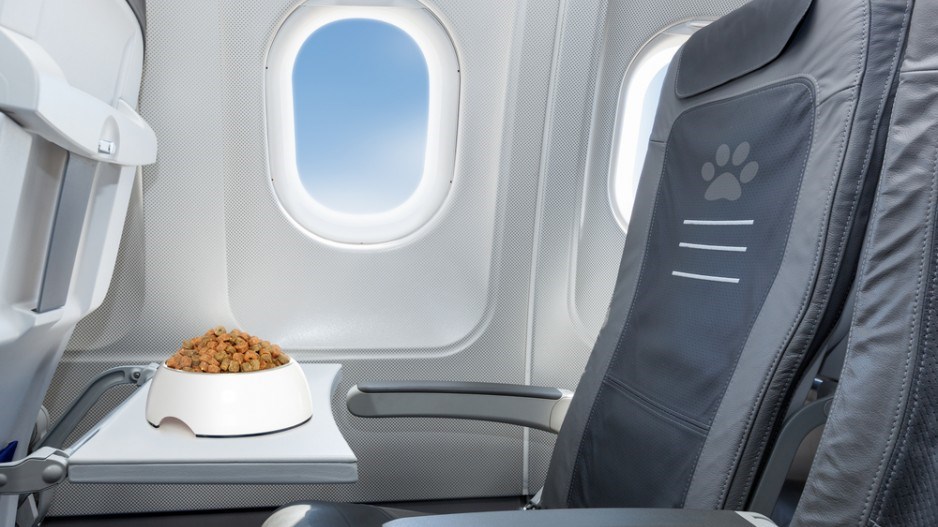A moving week in many directions.
Down:
It got rolling to the strains of Mark Knopfler’s “Broken Bones” as gold became the latest commodity to take it on the chin. Bloomberg reported that, in a 15-minute span during Asian trading hours, prices for the precious metal dropped more than they had in two years .
Not good news for the ailing Canadian dollar and B.C.-based miners already pretty much down for the count in their wrestling match with a persistent bear market.
In orbit:
Many had the same chance of attracting new or old investor money as landing the asteroid containing an estimated $5 trillion worth of platinum reported to be making a close flyby of Earth on July 19.
In transit:
Meanwhile back on Earth, the brave new world of ride sharing continued to accelerate, diversify and hit assorted bureaucratic roadblocks. While Uber signed a surprise deal with New York City that applies no restriction to the global ride-sharing juggernaut’s expansion in the city for a four-month study period, Business Insider reported that during the last quarter, the California Public Utilities Commission had issued cease-and-desist orders to a pair of Silicon Valley shuttle services for children companies: KangDo and Shuddle; the move followed a similar cease-and-desist order issued to Leap Transit, a luxury San Francisco transit bus service operating between the city’s Marina neighbourhood and its financial district.
On the water:
California Governor Jerry Brown waded into the freight transportation swamp as the state attempts to improve goods movement efficiency.
Brown’s “integrated action plan” would address a host of issues, not the least of which is the continued migration of Asia-Pacific container traffic to West Coast Canadian, Eastern Seaboard and Gulf ports and away from West Coast U.S. container terminals. The course adjustment from global shipping companies follows the lengthy labour disruptions that stalled container cargo flow through U.S. West Coast ports from mid-2014 through early 2015.
According to the Journal of Commerce (JoC), container traffic at U.S. West Coast ports was down 2% in May from the same time in 2014 but up 30% thus far this year at the Port of Houston and 25% at Savannah. It added that 18 of JoC’s top 40 container carriers moving goods in and out of the U.S. posted volume declines in 2015’s first quarter.
More stark comparisons in JoC numbers: year-to-date container traffic through the Port of Prince Rupert up 43% and down 62% through Portland.
Meanwhile, the Port of Long Beach reported that its June container cargo was down 4.4% compared with what it was in June 2014.
As reported in “Ill will lingers over U.S. longshore labour dispute,” year-to-date container units through Port Metro Vancouver as of March were up 15.2% compared with the same period in 2014.
Not helping improve U.S. West Coast port marketplace profiles, according to JoC data: a recent increase in traffic mitigation fees for containers being picked up at L.A.-Long Beach terminals at peak hours, longer truck turn times at terminals and more man-hours paid to International Longshore and Warehouse Union members even though fewer containers are rolling through ports West Coast U.S. ports.
In the air:
FastCo.Design reported on what it says will be the world’s first airport terminal for pets. According to FastCo.Design, the US$48 million, luxury ARK terminal at New York’s John F. Kennedy airport will cater to the estimated 70,000 animals that pass through the airport each year. It will include climate-controlled stalls and showers for horses and cows and US$100 per night hotel suites for dogs. Humans flying economy class should be so lucky.
Against the current and out to lunch:
From the water watch file: the week included radio reports of sprinkler scofflaws in upper-crust Vancouver neighbourhoods who reasoned that, according to their cost-benefit analyses, it made more sense to continue sprinkling expensive turf and pay watering fines than to let lawns go brown.
Idea for local water police: increase fines for repeat offenders to the point where that cost-benefit analysis falls in favour of water.
Best to do that before B.C. farmers resort to hiring water witches to summon some rain as their California counterparts are doing.
On the wire:
PR baloney and bilge alert (overinflated bafflegab category): From an invite to the launch party for yet another Kit and Ace “flagship” location – at which attendees could “get a firsthand look at key hyper-local elements” and savour a firsthand taste of Kit and Ace’s “technical luxury" and engage in “Real Talk conversation with Vancouver influencers and tastemakers.
Firsthand or second, hyper-local and technical luxury have next to no meaning at street-level, aside from providing more examples of overblown PR exclamation-point typing. However, Real Talk conversation with influencers and tastemakers is a rare opportunity indeed. Unreal Talk is far more common.




